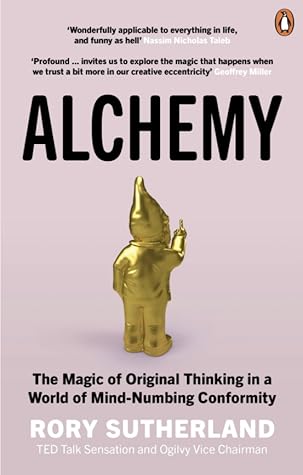A strictly logical approach to problem-solving gives the reassuring impression that you are solving a problem, even when no such process is possible; consequently the only potential solutions considered are those which have been reached through ‘approved’ conventional reasoning – often at the expense of better (and cheaper) solutions that involve a greater amount of instinct, imagination or luck. Remember, if you never do anything differently, you’ll reduce your chances of enjoying lucky accidents. This pseudo-rational approach, with its obsession with following an approved process, excludes
A strictly logical approach to problem-solving gives the reassuring impression that you are solving a problem, even when no such process is possible; consequently the only potential solutions considered are those which have been reached through ‘approved’ conventional reasoning – often at the expense of better (and cheaper) solutions that involve a greater amount of instinct, imagination or luck. Remember, if you never do anything differently, you’ll reduce your chances of enjoying lucky accidents. This pseudo-rational approach, with its obsession with following an approved process, excludes counter-intuitive possible solutions and restricts solution-seeking to a small and homogeneous group of people. After all, not even accountants or economists use logic to solve everyday domestic dilemmas, so why do they instinctively reach for calculators and spreadsheets the moment they enter an office? The conventional answer is that we deploy more rigour and structure to our decision-making in business because so much is at stake; but another, less optimistic, explanation is that the limitations of this approach are in fact what makes it appealing – the last thing people want when faced with a problem is a range of creative solutions, with no means of choosing between them other than their subjective judgement. It seems safer to create an artificial model that allows one logical solution and to claim that the decision was driven by ‘facts’ rather than opinion: remember that what oft...
...more
This highlight has been truncated due to consecutive passage length restrictions.


